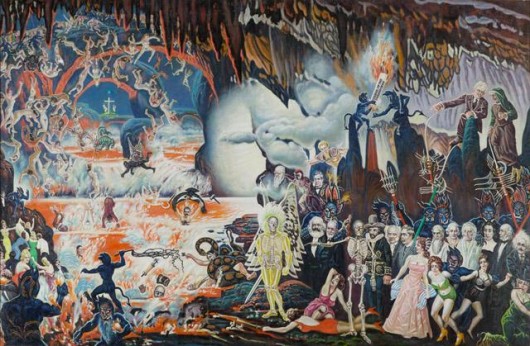High profile anti-religionists like Bill Maher and Richard Dawkins are altogether candid in their disrespect for Christians, and the faith we follow. No doubt Maher and Dawkins hold even less regard for that evangelical subset who believes we are living in the “end times”— a disregard shared by countless other atheists and agnostics.
The truth is, we apocalyptically minded Christians sometimes feel a bit isolated, even within our own faith. Bible prophecy remains a subject of great debate and disagreement in the church, with widely divergent schools of thought, including “amillinealism,” “postmellinealism, “preterism” and “dispensationalism,” to name but a few.
The dispensationalists probably come closest to what non-believers would label a “tinfoil hat” crowd. Basically, we dispensationalists—yes, I’m one of them—see the story of God’s relationship to man in a series of ages, or dispensations. These include the Age of Law (Old Testament), the Church Age (from Jesus to the present) and finally the Kingdom Age (Christ’s literal 1000-year earthly reign, following the Battle of Armageddon). Dispensationalism also tends to interpret scripture more literally than figuratively, although it certainly allows for some figurative/symbolic interpretation.
Dispensationalists get a bad rap in the popular culture, much of it deserved. For decades, best-selling dispensational authors like Hal Lindsay and Tim LaHaye have been serving up a toxic brew of right-wing politics, theocratic utopianism and super-patriotic militarism. Yet, despite these noxious ingredients, some good prophecy teaching still manages to seep through their writings.
But of all the unseemly excesses so ubiquitous among prophecy writers and teachers, few match their penchant for predicting hellfire-and-brimstone judgments from an angry God, including earthquakes, erupting volcanoes and meteorites smashing into cities; all those epic disasters insurance adjusters euphemistically classify as acts of God.
I wonder if it ever occurred to these authors (or their readers) that maybe, just maybe, they’ve gotten it all wrong; that perhaps the natural disasters prophesied in the Bible will turn out to be nothing more than the unexpected, unintended consequences of our own actions— environmental blowback on a global scale.
With that thought in mind, perhaps they should consider these alternative apocalyptic scenarios.

